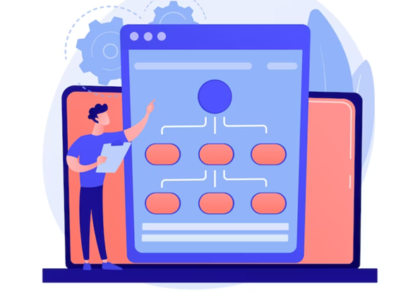Data analysis plays a critical role in both seemingly contrasting fields of gambling and healthcare. Though they appear disparate, the core of decision-making is influenced by data in both domains. This article explores how data influences our choices in gambling through the prism of minimum deposit casinos and the way it aids in making healthcare decisions.
Analytics in Gambling
- Understanding Player Behavior: Casinos use data analytics to study how players interact with games, what strategies they use, and what their preferences are. This helps in tailoring offers and promotions to specific players, thus enhancing their experience.
- Risk Management: Through careful analysis of betting patterns and outcomes, casinos can dynamically adjust odds and manage the balance between the house’s advantage and fair play. This ensures an attractive environment for the players and sustainable profits for the casino.
- Minimum Deposit Casinos: Minimum deposit casinos have gained popularity by allowing players to participate with lower stakes. Data analytics plays a role in setting the optimum deposit levels and understanding how these affect player engagement and retention. Read more about this trend and its benefits here.
Analytics in Healthcare
- Predictive Health Analysis: Healthcare professionals utilize data analytics to predict potential health risks within a population. They analyze various factors like age, lifestyle, and genetic information to identify trends that might lead to certain diseases, allowing for proactive care.
- Personalized Treatment: Data analytics enables the creation of personalized treatment plans by analyzing an individual’s specific health condition, genetics, and preferences. This increases the effectiveness of treatments by catering to the unique needs of each patient.
- Health Maintenance: Modern health tracking devices provide data that can be analyzed to understand a person’s daily habits and health conditions. Healthcare professionals can use this data to guide individuals in maintaining or improving their health.
Overlapping Principles
- Ethical Considerations: Both in gambling and healthcare, the data used must be handled with utmost care. Ethical considerations such as consent, confidentiality, and security are paramount in both fields.
- Constant Evolution: Both industries are marked by rapid changes and adaptations, fueled by continuous data analysis. The ability to quickly respond to new insights or trends is essential to remain competitive and effective.
- Leveraging Technology: In both healthcare and gambling, technology is a key enabler. Whether it’s employing AI for personalized gaming experiences or using advanced imaging for medical diagnoses, technology amplifies the power of data analytics.

The Human Element
- Emotional Factor in Gambling: Though data can guide decisions in gambling, human emotions often influence choices. Understanding this emotional element adds a layer of complexity to predictive models in the gaming industry.
- Patient-Centered Care: In healthcare, empathy and understanding the patient’s needs are just as critical as the data-driven insights. Ensuring that technology complements, rather than replaces, this human connection is a central consideration.
Real-time Decision Making
In Gambling Environments
- Adaptation to Player Behavior: Casinos use real-time analytics to adapt to players’ behavior on the spot. This could involve changing game dynamics, offering personalized bonuses, or adjusting the betting odds.
- Fraud Detection: Real-time analysis of betting patterns and player behavior helps in detecting fraudulent activities. Immediate action can be taken to prevent potential loss.
- Enhancing the User Experience: Online casinos, especially minimum deposit ones, use real-time data to enhance the user experience by providing immediate feedback, recommendations, and support.
In Healthcare Systems
- Emergency Response: Hospitals use real-time analytics to guide emergency responses. By continuously analyzing patient data, medical professionals can make instantaneous decisions that could be life-saving.
- Remote Monitoring: Patients with chronic conditions are often monitored in real time. This continuous data flow allows healthcare providers to spot potential problems early and intervene if necessary.
- Resource Allocation: Real-time data on hospital occupancy, equipment availability, and staffing helps administrators allocate resources efficiently, ensuring that patient needs are met promptly.
Analytics for Long-term Strategies
In the Gaming Industry
- Market Analysis: Casinos analyze market trends and customer preferences over longer periods to form their long-term strategies. This includes expansion into new games, technological adoption, and customer engagement plans.
- Regulatory Compliance: With the help of analytics, casinos ensure compliance with various regulations. Monitoring and reporting are carried out efficiently, maintaining transparency and integrity.
- Sustainability in Minimum Deposit Casinos: Long-term data can reveal the sustainability of trends like minimum deposit casinos. Understanding how these trends evolve over time helps in long-term planning and growth.
In Health Management:
- Population Health Management: Analyzing healthcare data over extended periods helps in understanding and predicting population health trends. Strategies are then developed to promote public health and prevent diseases.
- Chronic Disease Management: Long-term data analysis supports the development of strategies for managing chronic diseases. This involves understanding how various factors contribute to long-term health and devising appropriate interventions.
- Technology Integration: Healthcare providers use analytics to understand long-term technology needs and integration strategies. This ensures that the technology adopted aligns with the long-term goals and enhances patient care.
Conclusion
The additional aspects of real-time decision making and long-term strategic planning further highlight the complexity and the far-reaching impacts of analytics in both gambling and healthcare. Whether it’s immediate responses in a casino environment or long-term health strategies for a population, data analytics plays a crucial role in shaping decisions and outcomes. The integration of real-time responses





